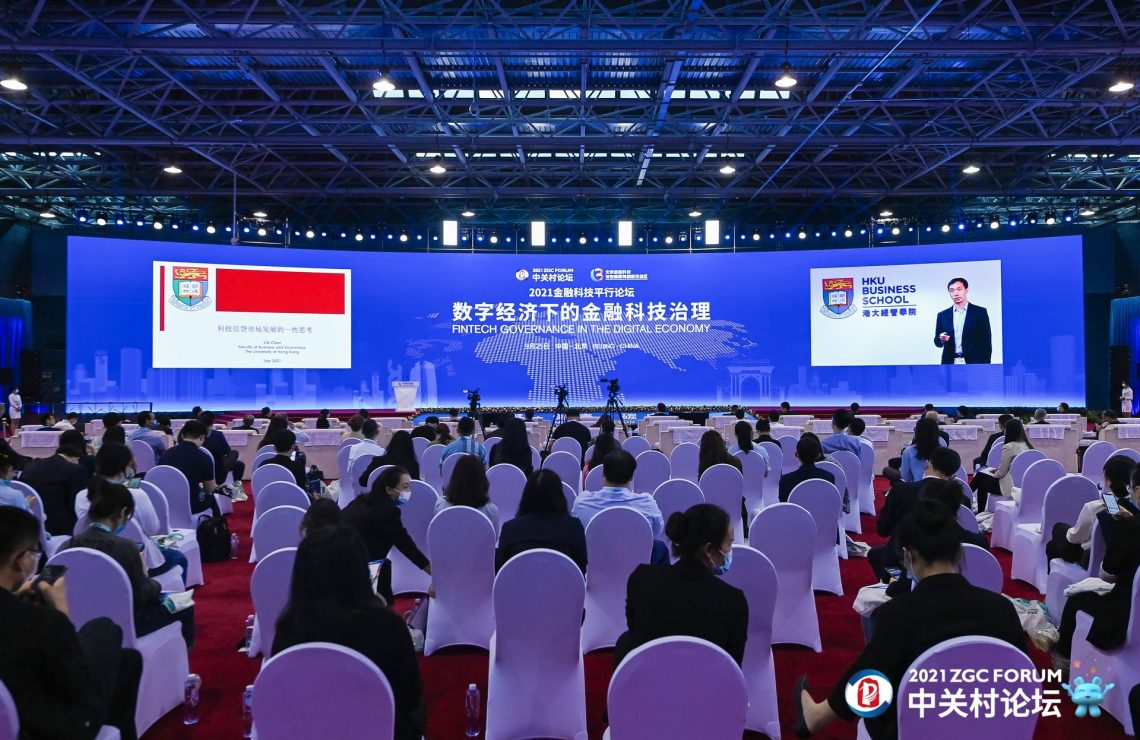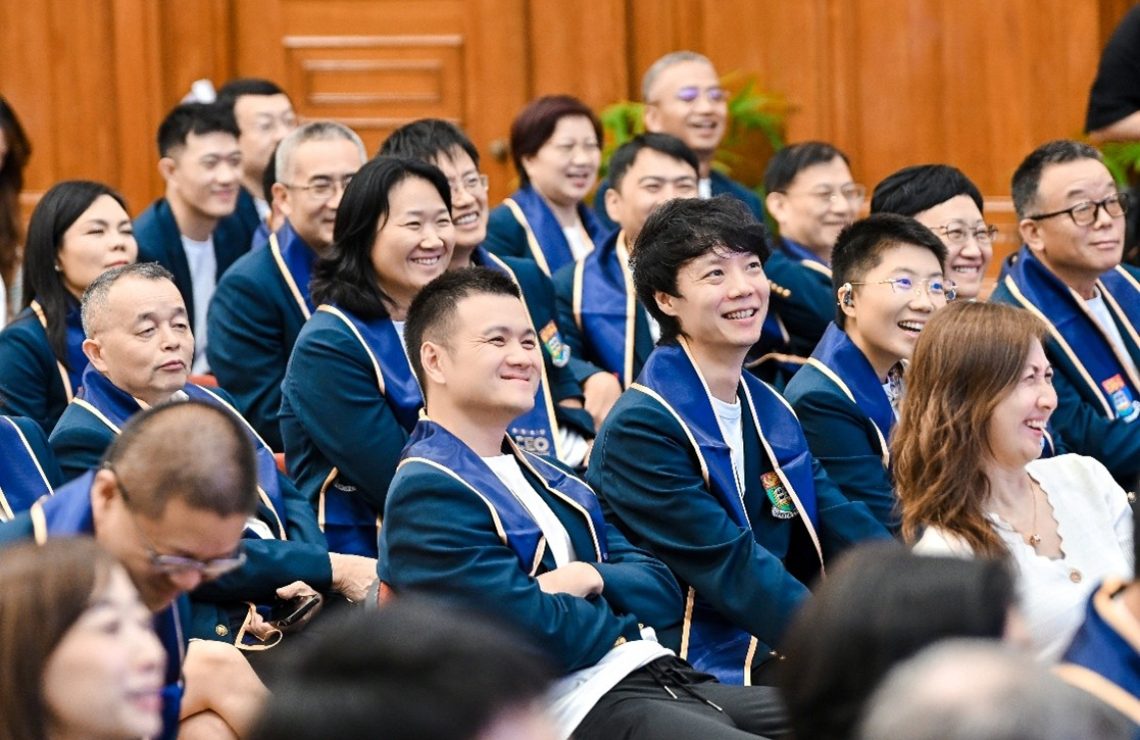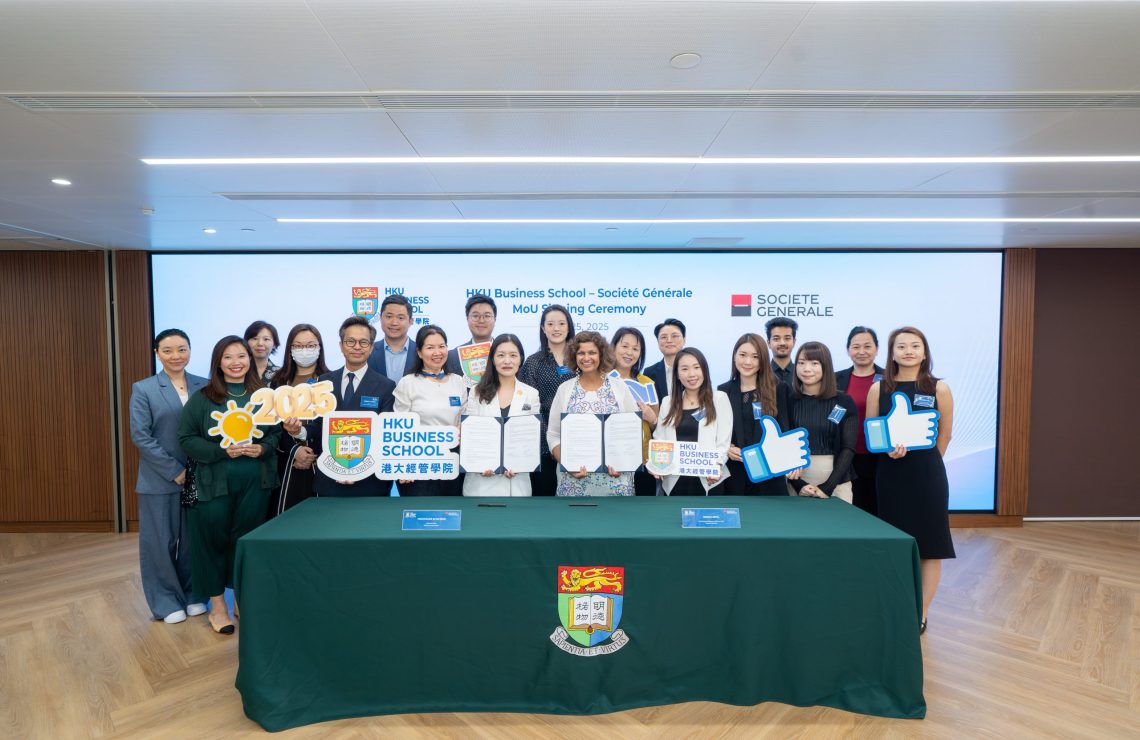
Professor Chen Lin delivers Keynote Speech titled “Food for Thought on the Development of the Technology Credit Market” in the 2021 ZGC Forum’s Financial Technology Parallel Forum
The Zhongguancun (ZGC) Forum was successfully held from September 24 to 28 in Beijing, China. The ZGC Forum is a national platform that facilitates global exchanges and cooperation on high-tech innovation. This glorious mission is bestowed upon by the CPC Central Committee, and the Forum itself is considered to be the embodiment of China’s innovation-driven growth. The 2021 session was co-hosted by the Ministry of Science and Technology of the People’s Republic of China, Chinese Academy of Science, China Association for Science and Technology, and The People’s Government of Beijing Municipality.
Professor Chen Lin, Associate Dean in Research and Knowledge Exchange and Chair of Finance, was invited as a keynote speaker for the parallel forum – Financial Technology Forum, on September 25. Themed “FinTech Governance under the Digital Economy,” renowned scholars, skilled industry experts, and corporate leaders around the globe were invited to share their knowledge and inject new impetus in the development of FinTech. A wide range of topics related to the digitalisation of the financial industry, the challenges and opportunities brought by the development and reform of FinTech, and effective governance over FinTech were discussed.
Other than Professor Chen Lin, distinguished guests such as Professor Michael Spence, Nobel Memorial Prize laureate in Economics, Professor Yang Li, Chairman of the National Institution for Finance & Development, Professor Lei Lu, Deputy Administrator of the State Administration of Foreign Exchange, Professor Wenzhong Fan, Board Director and Secretary of Party Committee of Beijing Financial Holdings Group, and other global business leaders and top scholars were also invited. Attending the forum online, Professor Lin had delivered a keynote speech titled “Food for Thought on the Development of the Technology Credit Market” to share his views on the opportunities and challenges faced by the growing FinTech credit market.
Professor Lin posited that Small and Medium Enterprises (SMEs) are the pivot of every economy, and domestic consumption is therefore the major economic propelling force. However, he observed that traditional financial institutions are unable to fully address the credit needs of SMEs and domestic consumers, and this problem is further exacerbated by the Coronavirus pandemic. FinTech lenders have now become one the major liquidity sources for SMEs and domestic consumers worldwide.
The reason why traditional financial institutions are unable to cover this niche, is because they are hindered by their IT infrastructures. Comparing with other developed countries, Professor Lin observed that the credit coverage rate in China is lagging behind. Traditional financial institutions, such as banks, rely on credit scores and algorithms to conduct credit checking and credit pricing. However, because of low credit coverage rate, Chinese SMEs and domestic consumers in general are having difficulties in submitting “hard information”, such as those quantitative and verifiable information contained in balance sheet data and produced with credit scoring, when applying for loans. That said, to collect and effectively utilise those qualitative and non-verifiable “soft information” is the key to promote financial inclusion. Professor Lin pointed out that there are already academic research proving “soft information” could play a critical role in credit pricing. Therefore, to open up the sharing of credit information can massively benefit both traditional financial institutions and FinTech lenders.
But Professor Lin warned that this could be a double-edged sword. As the abuse of consumer privacy can inflict serious damage to the market, it is important to strike a balance between data sharing and consumer privacy. One of the possible solutions, is to utilise the latest Federal Learning AI technology, which is believed to be capable of mitigating the risks in data management and effectively protecting consumer privacy. In addition, there are also concerns that a new monopoly is on the rise as some observed that FinTech lenders are starting to collaborate with small-scale credit to increase their market share. Some are also worried that tech firms’ monopoly over big data technology and algorithm coding will lead to problems such as high agency costs, system-wide risks, and the deterioration of innovation within the FinTech industry, etc.
While the society has doubts over the FinTech industry, Professor Lin would like to point out that the FinTech sector may contribute a lot in counter cycle measures. For example, as FinTech lenders are believed to have a thorough understanding over the needs of their SMEs clients, if they can keep providing precisive financial services to SMEs during recessions, the FinTech sector could potentially help stabilising national output and unemployment rate. Their potential contribution in Corporate Social Responsibilities could be significant.
Financial inclusion is defined as the availability and equality of opportunities to access financial services, and this concept can only become a reality with the development of FinTech. Could FinTech impact social welfare? Will it reform domestic finance and transform the physical economy? All of these questions are closely related to our nations’ grand strategy of achieving common prosperity. Until this very moment, FinTech is still a nascent concept relying on nutrients from the academia and the private sector to sprout, and the international community can unit and brought forth a new age for mankind.







